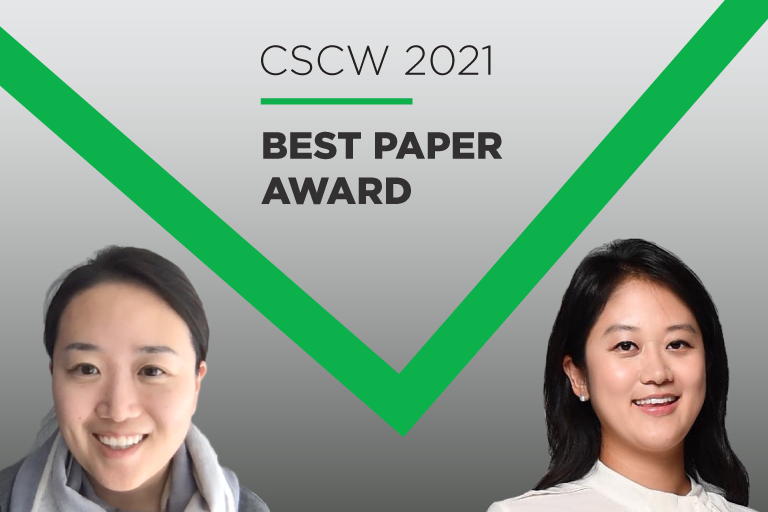Dr. Hee Rin Lee, assistant professor in the Department of Media and Information, and Ji Youn Shin, doctoral student in the Information and Media Ph.D. program, are part of a group of researchers that won a Best Paper Award at the 24th ACM Conference on Computer-Supported Cooperative Work and Social Computing in October.
Best Paper Awards represent 1 percent of all submitted papers at CSCW 2021.
Titled “Every Cloud Has a Silver Lining: Exploring Experiential Knowledge and Assets of Family Caregivers,” the paper was unique in the fact that it looks at the caregiver strengths, rather than finding technological solutions to deficits or problems that caregivers face.
“I was excited to hear the news as this is the first paper that I worked on as a principal investigator,” Lee said. “Additionally, CSCW is a flagship conference in the field of Human-Computer Interaction /Human-Robot Interaction.”
Coauthors on the paper include Catherine Elizabeth Davis, an MSU graduate; and University of Michigan researcher Dima Chaar and oncologist Sung Won Choi.
The difference in the way that the team conducted the research was instead of doing their work in hospital settings, they did interviews in the homes of caregivers and focused on caregivers’ experiential knowledge.
Oftentimes, Shin said, caregivers are busy memorizing or taking notes on information shared from clinicians during visits in hospitals, so it’s more difficult for caregivers to share their coping strategies learned from long-term caregiving tasks.
“I was surprised at how much knowledge, how much strategy, they developed,”Shin said, adding that at in-home settings, caregivers could be more “honest” and “empowered” compared to clinic settings. Shin said they were more comfortable to discuss their stories. “We tried to look at caregivers as people who have assets and strategies.”
Shin says the biggest takeaway from this paper is caregivers don’t necessarily need the same kind of generalized support that aims to alleviate burdens typically offered by health care settings or researchers, rather they need support that strengthens their existing skills, assets and knowledge. In this way, the support from others or technology could be more sustainable solutions for caregivers.
Lee added: “This study not only suggests a new way of incorporating experiential knowledge of family caregivers but also provides an opportunity for the HCI community to rethink if other socially marginalized people’s knowledge has been appropriately appreciated in the field.”
By: Jennifer Trenkamp
